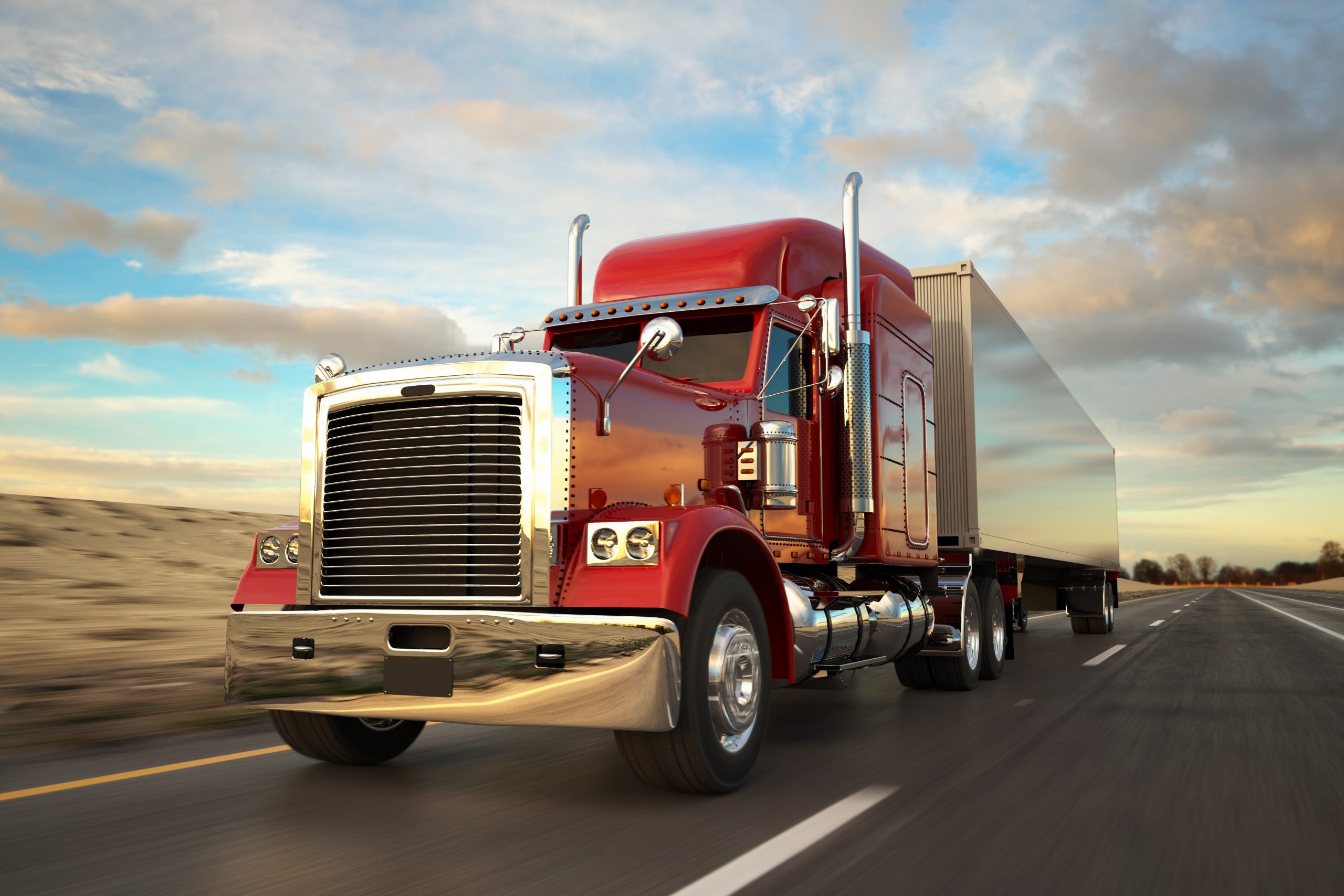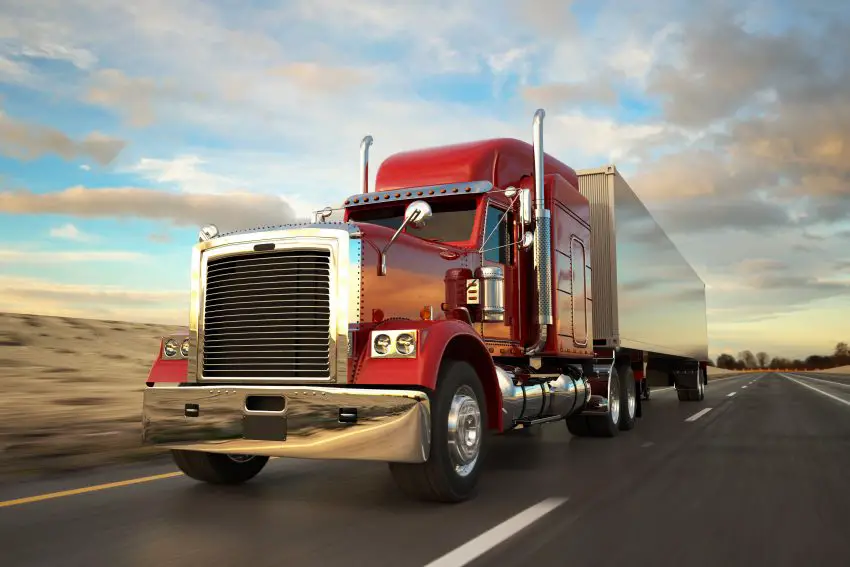Are you a Trucker looking to Lower your Taxes? Checkout these “31 Tax Deductions for Truckers, Truck Drivers & Owner Operators?”
We have prepared income taxes for Truck Drivers and self employed for over 20 years. List of expenses below is best list truck driver tax deductions that we used on daily basis to help Truckers and Owner Operators Save Thousands of Dollars in Taxes.
Truck owners can deduct many expenses that are not limited to general business expenses.
You can find General Business Expense List here. This list pertains to most businesses.

Contents
Tax Deductions for Truckers, Truck Drivers & Owner Operators
(Independent Contractors-Non W2 Employee)
Self Employed Truck Drivers and Truck Owner Operators are treated very differently By the IRS as compared to truck drivers that received a W2 from a job.
Self employed Truck Owners that receive 1099 have many unique tax deductions available for them. Take some time to go through the list of deduction for Truck Drivers. You will definitely find many deductions that you may be unfamiliar with.
These deductions only apply if you are an independent contractor and not a W2 employee.
Here are the Tax Deductions & Expense List for Truckers & Truck Driver:
Diesel Fuel for Truck, Tractor & Refer
Diesel fuel expense is one of the largest expenses for truckers and owner operators in a tax year. The cost of diesel fuel can vary widely, depending on the type of truck, the mileage driven, and the current market prices.
In addition, Diesel fuel expense can also be affected by changes in the economy, weather conditions, and other factors. As a result, it is important for Truck Driver and owner operators to carefully track their Diesel fuel expenses and plan for fluctuating costs.
By doing so, they can ensure that they have sufficient funds to cover their Diesel fuel expenses and avoid financial difficulties.
Legal & Professional Fees
Legal and Professional Fees for Truck Drivers and Owner Operator Truckers can be expensive. There are many different types of fees that can be incurred, such as: -Attorney’s fees, Court costs, Accountant Fees, Trucking bookkeeping and form filing(2290) fees, permit fees . For many Truck Driver, these fees are simply a cost of doing business.
Legal and Professional Fees for Truck Drivers and Owner Operator Truck Driver can be expensive, but they are a necessary part of doing business. Many truckers simply factor these fees into the cost of doing business and move on.
Repair & Maintenance
Repair and maintenance is a vital part of owning a truck and being self employed. Truckers and owner operator truck drivers need to be able to keep their trucks in good working order to avoid breakdowns and accidents.
Repair and maintenance is the one of the one of the biggest expenses when it comes down to truck driver tax deductions. First, it’s important to have a regular maintenance schedule. This will help you catch problems early and prevent them from getting worse.
Second, when you do have to make repairs, be sure to use high-quality parts. Cheap replacements may save you money in the short term, but they can cause more problems down the road.
Finally, don’t forget about regular care for your truck’s interior and exterior. Cleaning and Waxing your truck regularly will help protect it from the elements and keep it looking its best.
By following these simple tips, you can keep your truck running smoothly for years to come.
Heavy Highway Use Tax(Form 2290)
Most Truck Driver Pay about $550 Dollar for Heavy Highway Use Tax. This is 100% tax deductible and truck driver can deduct the cost of highway use tax that they pay to IRS.
Form 2290 is used by Truck Driver and owner operator truck drivers to calculate their Heavy Highway Use Tax.
This tax is based on the amount of travel that a vehicle has done on public roads during the tax year.
The rate is $550 per year for vehicles that travel 5,000 miles or less, and $100 for each 1,000 miles over 5,000.
Truck Driver and owner operators can either pay the tax themselves or have it deducted from their monthly highway use fees. Form 2290 must be filed by the end of the month following the month in which the vehicle was first used on a public road.
For example, if a truck is first used on a public road in June, Form 2290 must be filed by July 31st.
Truck ,Trailer & Cargo Insurance
Truck, Trailer and Cargo Insurance is a Tax Write off for Truck Driver.
Truckers and owner operator truck driver are required by law to have insurance. Insurance for truckers and owner operator truck drivers is a bit different than regular car insurance.
Truck and trailer insurance covers the truck, the trailer, and the load. There are three main types of coverage: liability, cargo, and physical damage. Truckers and owner operator truck drivers need to have all three types of coverage.
Liability coverage protects the trucker or driver from being sued if they cause an accident.
Cargo coverage protects the load from being damaged or lost. Physical damage coverage protects the truck and trailer from being damaged in an accident. Truck Driver and owner operator truck drivers need to have insurance that meets the minimum requirements set by the state they are operating in.
Some states require higher levels of coverage than others. Truckers and owner operator truck drivers should check with their state to find out what the requirements are. Truckers and owner operator truck drivers can get insurance through a variety of sources, including insurance companies, Trucking Associations, and Captive Agents.
Supplies
Truckers and owner operator truck driver have a lot of expenses and it can be hard to keep track of it all. But there is one expense that is often overlooked: supplies.
From Safety glasses, Safety Cones, to first-aid kits, there are a number of essential items that every trucker should keep on hand.
And the good news is that many of these items can be deducted as business expenses come tax time.
So stock up on supplies and help your bottom line in the process.
DMV Fees for Truck & Trailer
DMV fees can be a expensive for truckers and owner operators. DMV fees for a truck and trailer can range from $1500 – $3000.
DMV fees are one of the many expenses that truckers and owner operators have to pay.
DMV fees can be a burden for truckers and owner operators, but they are necessary in order to keep their vehicles on the road.
DMV fees paid for your truck and trailer is a business tax deduction. We recommend keeping track of this and providing this as an expense to your tax accountant.
Uniforms, Safety Shoes & Safety Equipment
Many Truck Driver use special safety steel shoe shoes and safety equipment to keep themselves safe during travelling across country. These are all tax write offs. Keep track of these expenses whether they are large or small so you can get tax deduction.
Contract Labor(1099 NEC Required)
If you hire independent contractors or contract labor to help with your trucking business, you are allowed to get a proper tax deduction on these expenses. If you pay anyone 600 dollars or more per year, don’t’ forget to issue them 1099 before Jan 31st.
We recommend you have the contractor fill out a IRS form w9 form so you have all the information you need in order to file a 1099 on time with the IRS.
Trailer Rent
If you rent or lease your trailer, you are able to deduct or expense the monthly rent you pay.
For example if you rent your trailer and pay 1000 dollars per month, you are able to deduct 12,000 per year in Trailer Rent Expense.
Truck Lease Payment
Many Truck Driver lease their truck or trailer instead of purchasing their equipment.
Any monthly payment you pay for your vehicle lease is a tax write off. For example if you lease your truck or tractor for $1500 per month you get to write of $18000 Per year as Lease expenses.
Employee Payroll (Need to Issue W2 to employees & File and Pay Payroll taxes)
If you have any drivers or admin staff for your trucking company that you pay on W2 payroll, you are allowed to deduct employee payroll expenses.
Employer Portion of Payroll Taxes
US employers are required to match social security and Medicare taxes along with paying FUTA. Any amounts paid by employer on employees behalf is tax deductible.
If you have any drivers that you pay on W2 payroll, you are allowed to deduct payroll taxes paid to IRS and also to State.
Fuel Tax(IFTA)
Any IFTA International Fuel Tax Agreement commonly called Fuel Tax Expenses paid is fully tax deductible.
IFTA is a fuel tax collection and sharing agreement for the redistribution of fuel taxes paid by Long Haul commercial carriers
Drug Test Expenses
Any Drug Test expenses paid by the trucker is tax deductible. Many states and companies requires drug test to make sure the trucker is a safe driver. Hence, Truck Driver can deduct this as a ordinary business expense.
Business Related Use of Telephone
We recommend keeping track of your business phone use and deduct appropriate amount. For example if you pay 100 dollars a month in phone bill and use is 60% of the time for business, and 40% of the time for personal use, you can deduct $60 times 12 months so 720 dollars per year.
Business Meals(Typically 80% deduction but during Corona Virus time Frame 100%)
Any business meals during local travel is 50% tax deductible, Long haul drivers can deduct up to 180% but during corona virus, special deduction is allowed up to 100%
Travel & Lodging Related to Business
If you have to travel or rent a hotel room while doing long haul trip to sleep or rent, you are allowed to deduct any Hotel Expenses and as well any meals during the trip.
Many truck driver sleep in their truck but many like to get a motel room to be able to sleep or rest especially if their truck is in shop or it is snowing outside.
Truck Wash & Cleaning
Its important to keep you truck and trailer clean especially when you have to drive through Snow or Mud. Hence you can deduct expense to wash your truck and trailer.
Bridge Tolls & Scales
Any tolls or scales paid by Truck Driver are fully tax deductible.
Towing Expenses
If your truck or trailer breaks down on the highway and you need to hire a tow the vehicle to a repair shop, you are allowed to deduct Towing expenses.
Parking & Yard Overnight Parking or Rent
If you have to pay for Yard or secure parking where you park your truck or trailer or store stuff overnight, you are allowed to deduct that parking or rent expense.
Its very common for many truck and tractor owners to pay somewhere between $150-$300 Per month for secured or fenced parking.
Motor Carrier Permit (MCP)
Motor Carrier Permit or MCP is also tax deductible. This fee is a requirement for many Truck Driver to operate their Trucking business.
Lumper Expenses
Typically, A lumper fee is charged to the trucker or carrier when a customer or a shipper utilizes third party workers to help load or unload the truck or the trailer load or partial load contents
This fee is tax deductible if paid by the trucker.
Broker Fees
When you get your load from a broker, you may pay a broker fee. This fee can be deducted from your taxes as an expense.
Dispatch Fees
Dispatch fees you pay to a dispatch service is tax deductible. Many dispatch companies charge from 5 to 10 percent of the load amount and you can write off this amount in your taxes.
Don’t forget to issue a 1099 to them at the end of the year.
DOT (Department of Transportation) Inspection Fees
If you have to pay for DOT inspection fee, you are allowed to deduct this from your taxable income and hence lower your tax burden.
Interest Expenses
You are allowed to deduct any business interest expense on your business loans.
For Financing Truck, Trailer, Business Credit Cards or Business Lines of Credit.
Depreciation Expenses ( Any Equipment such as Truck, Tractor, Trailer purchase)
Depreciation is an important topic for truckers and owner operators to understand. Depreciation is the decrease in value of an asset over time. For trucks, this can be caused by normal wear and tear, as well as unexpected repairs.
Depreciation can also be impacted by changes in market value, such as when fuel prices increase. As a result, it’s important for truckers and owner operators to keep track of their depreciation expenses.
This will help them to budget for future repairs and replacement parts, as well as to get a sense of the truck’s value over time. Owner operators can deduct depreciation expenses on their taxes, which can save them money in the long run.
Most Tractors can be depreciated over 3 years. Many trucks and trailers are depreciated over 5 to 7 year period. We also recommend using Section 179 or Bonus Depreciation to lower your taxable amount by accelerated depreciation.
So understanding depreciation is essential for any trucker or owner operator looking to keep their business running smoothly.
Per Diem Expenses(Need to know Days Out of of Town)
If you are a Self employed, long haul trucker, you are allowed to get a Per Diem Expenses if you are away from home.
Per diem expenses are a type of allowance that Truck Driver and owner operators can receive to cover the costs of meals and lodging while on the road. These expenses are typically reimbursed by the trucking company, and they can be a significant help in offsetting the high cost of living on the road.
Per diem allowances are typically based on the number of days spent away from home, and they can vary depending on the city or state where the trucker is traveling. For example, per diem rates in New York City are significantly higher than in other parts of the country.
Per diem expenses can be a helpful way to offset some of the costs associated with life on the road, but it’s important to remember that these expenses are not unlimited.
Truck Driver and owner operators should track their per diem expenses carefully to ensure that they do not exceed their reimbursement limit when they filed their income tax as a self employed.
Self Employed Health Insurance
If you are self employed trucker, then don’t forget to write off your health insurance for yourself and your family.
Health insurance is not cheap, so this is allow you to get a good tax break and help you lower your taxable income.
Self employed health insurance is written off as an adjustment on your taxes similar to the Self Employment Tax.
Retirement Plan(IRA, SEP IRA, Defined Benefit Plan)
Self employed truckers are allowed to setup their own Traditional IRA, Roth IRA, SEP IRA and Defined Benefit or Pension plan.
The can not only allow you to save money for your retirement, you should be able to lower your taxable income significantly hence lowering your tax liability.

Conclusion:
It is important to learn the tax deductions associated with Transportation business if you are a self employed trucker. You need to know what can you write off as an expense and what cannot be written off.
We have provided Ultimate Tax Deductions for Truckers & Owner Operators broken down by Local Haulers and Long Haulers.
Truck Drivers are always on the road, as a result many end up loosing their 1099s in the mail, receipts or tax documents and end up getting audited. See our tips on how to avoid IRS Audit.
Tips from Experts:
You need to Issue Form 1099-MISC for each person to whom you have paid at least $600 during the year
These payments include expenses such as Rent & Payments to an Attorney.
Truck Drivers get audited all the time as IRS knows that many of them misplace their records as they are always on the move. Furthermore, make sure you retain your expense receipts, bank statements, Credit Card Statements & 1099s copies and other tax related documents for 4 to 7 years. Here is more details on how long to retain tax records
Article Written By
Navjeet Chahal, EA( IRS Enrolled Agent)






3 thoughts on “31 Best Tax Deductions for Truckers, Truck Drivers & Owner Operators”